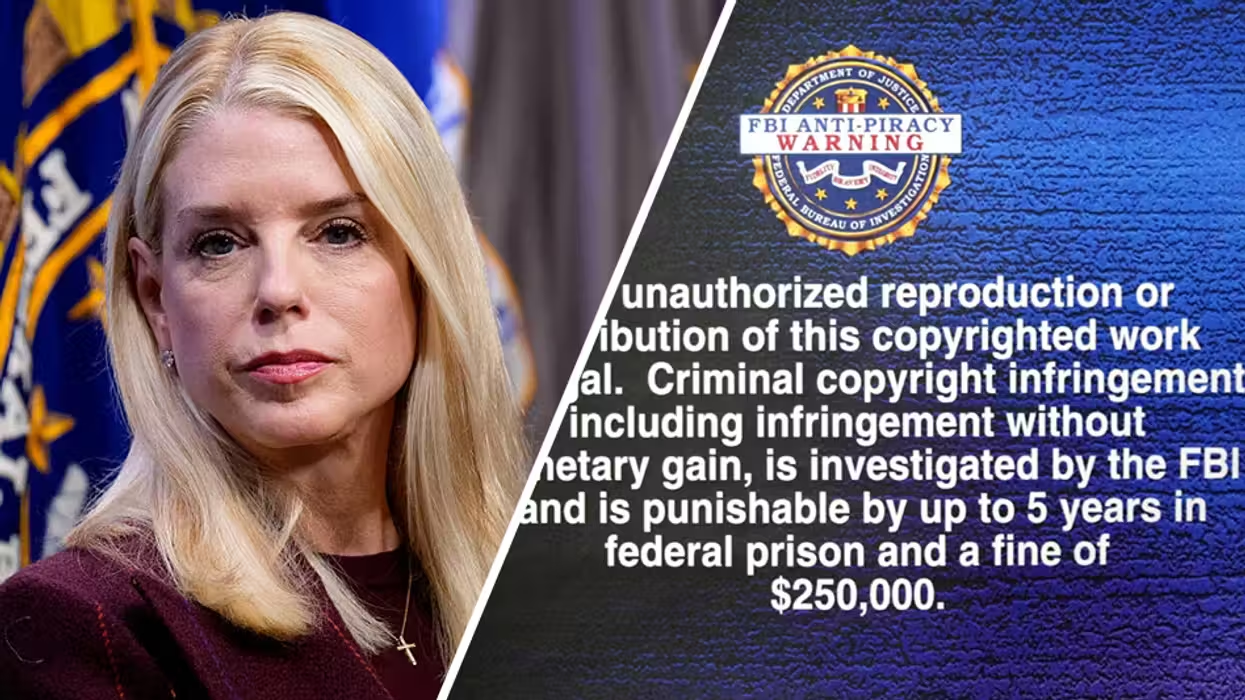
© 2025 Blaze Media LLC. All rights reserved.
Here Are the Top Scientific Ways the World Could End (One Will Surprise You)
January 17, 2012
"oxygen apocalypse"
With the Bulletin of Atomic Scientists' official doomsday clock moving one minute closer to midnight last week -- we are now at 5 minutes away from catastrophe -- and, according to the Mayans, we are 339 days from the apocalypse (Dec. 21, 2012), Wired has released some of some of scientific ways our world could end.

Here are some of the usual culprits:
- Supervolcano: Wired cites how huge volcanic erupts have contributed to mass extinctions in Earth's history and points to one supervolcano in America's own backyard for potential devastation: the one in Yellowstone National Park. Wired reports that the volcano under Yellowstone has shown evidence of erupting more than 2 million years ago, and recently has risen about 10 inches in the last 10 years. But, Wired has more from a volcanologist in this post about why he doesn't think a Yellowstone eruption is likely anytime soon.
- Armageddon Bruce Willis and Ben Affleck-style: Wired reports that in 2004 a 900-foot asteroid had a 2 percent chance of hitting Earth in 2029, but after some recalculation the odds became even less at 1 in 250,000 chance. Although we may not be in for anything catastrophic from asteroids, Wired reports that NASA predicts an asteroid more than 55 yards across will hit Earth every 100 years, causing localized devastation.
- Super virus: Even though a resistant super virus or bacterium seems to be the most likely thing to kill life on Earth, thanks to recent movies and American and Dutch scientists stating they created a pathway for a virus strain once limited to birds (H1N5) to be contagious for humans, Wired reports that its still unlikely everyone would get wiped out. Wired reports Peter Katona of UCLA as saying it would "wreak havoc" but the likelihood that someone or something on Earth would be resistant to it is high. Wired reports Caltech virologist Alice Huang as saying the virus would have to kill in a week or less to be successful at creating an apocalypse.
Here's the one you probably weren't expecting: Death by Algae. You may think algae are harmless -- and most are -- but even the harmless ones in mass quantity can choke resources and create a disgusting muck. But it's not the muck that will kill us. Death by algae, according to Wired, will be a slow death involving a change in our atmosphere. Wired reports that Caltech geobiologist Joe Kirschvink has proposed diatoms as a lethal weapon to humanity if they were for some reason unable to use water in photosynthesis. Kirschvink explains that diatoms break up the atoms in water -- oxygen and hydrogen -- which are then used by other organisms. If water wasn't present and the diatoms mutated to photosynthesize using oh, say, salt (sodium chloride), they could create a toxic chlorine gas. If the diatoms were immune to things like chlorine, their growth would be exponential, filling the world with the poisonous gas over a couple million years.

Think death by diatoms is unlikely? Well, it is, but a similar event happened billions of years ago, creating atmospheric conditions tolerable to life as we know it today:
A similar scenario played out about 2.35 billion years ago when cyanobacteria, a type of blue-green bacteria, learned how to photosynthesize. The bacteria dumped oxygen molecules into the atmosphere — which until then was mostly carbon dioxide — and killed off species that couldn’t tolerate oxygen, Kirschvink says.“Oxygen molecules at the time were unheard of in the environment,” he said. Once diatoms set in motion the “oxygen apocalypse,” there was no stopping them. They had an advantage over creatures that didn’t like oxygen.
Check out more of Wired's doomsday predictions, including supernovae and the sun turning Earth into an oven, here.
Want to leave a tip?
We answer to you. Help keep our content free of advertisers and big tech censorship by leaving a tip today.
Want to join the conversation?
Already a subscriber?
more stories
Sign up for the Blaze newsletter
By signing up, you agree to our Privacy Policy and Terms of Use, and agree to receive content that may sometimes include advertisements. You may opt out at any time.
Related Content
© 2025 Blaze Media LLC. All rights reserved.
Get the stories that matter most delivered directly to your inbox.
By signing up, you agree to our Privacy Policy and Terms of Use, and agree to receive content that may sometimes include advertisements. You may opt out at any time.






